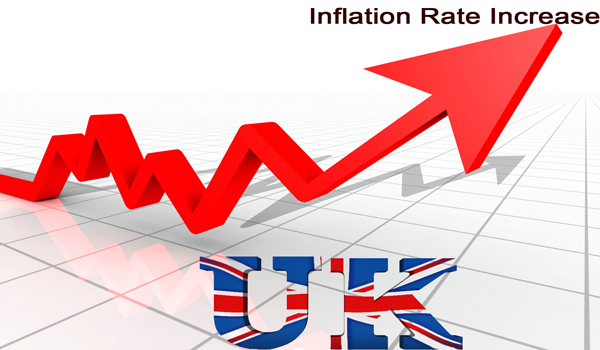The UK inflation rate (CPI) was higher in July due largely to higher fuel prices. UK Inflation rate rose from 0.5% in June to 0.6% in July. Not a killer rise, but a rise nonetheless that raises uncertainty for the next period. The Consumer Price Index rate is UK’s standard inflation metric, and other reasons for inflation were increased alcoholic drink prices and hotel room rises.
The Retail Prices Index (RPI), is a measure that includes housing components, such as Council Tax, housing price depreciation and mortgage repayments. RPI rose by 1.9% in July compared to a 1.6% rise in June. An important aspect of July’s RPI UK inflation rate is that it sets the limit regarding how much rail fares in Great Britain can be increased by in 2017. This does not apply to Northern Ireland.

The Office of National Statistics in the UK has suggested that costs of importing had increased due to the fall in the value of sterling (UK pound value) after the Brexit vote to leave the EU. This is very logical and hardly needed to be stated! Manufacturers have faced a 4.3% increase in import prices in the year to July compared to fall of 0.5% in the same year to June. Imported food prices increased by 10% and metals by 12.4%.
While the price of important goods is increasing since the Brexit vote, there appears to have been no increase in prices in the shops to consumers. However, the increase in import prices must eventually reach the consumer. The pound against the dollar is now around 13% below its exchange rate prior to the referendum vote on June 23. It has also dropped 10% against the euro. Savvy manufacturers ordered their raw material requirements before the vote.
With reference to automobile fuel prices, pump prices rose by 0.7% from June to July at a time when dollar prices were dropping. This is also sure to be passed onto the consumer and increase the inflation rate – CPI and RPI versions.
Cost reductions, and the government’s desire to keep down the UK inflation rate, may ultimately affect wages. Pay increases may be deferred as employers are forced to keep costs stable. It is also believed in some quarters that interest rates will drop below the current 0.25% in order to help stimulate growth. The rate might drop to 0.1% this year – possibly November.